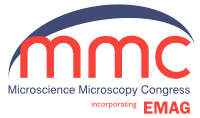Linkam reports on results using TASC - Thermal Analysis by Structural Characterisation
 Market leaders in temperature controlled microscopy, Linkam Scientific Instruments, are working in partnership with the School of Pharmacy at the University of East Anglia to evaluate a new analytical technique known as TASC - Thermal Analysis by Structural Characterisation.
Market leaders in temperature controlled microscopy, Linkam Scientific Instruments, are working in partnership with the School of Pharmacy at the University of East Anglia to evaluate a new analytical technique known as TASC - Thermal Analysis by Structural Characterisation.
Dr Sheng Qi is a senior lecturer in pharmaceutics in the School of Pharmacy at the University of East Anglia. Sheng's current research interests focus on gaining a fundamental understanding of the behaviour of drug-polymer/lipid dispersions in solid (phase behaviour) and liquid (in biological fluids) states. She is also developing new approaches for stabilising supersaturated drug dispersions. By working with industrial partners as well as cross-discipline collaborators, her group is aiming to contribute to the interdisciplinary research area of enhancing drug absorption via tailoring the physical chemistry of drug formulations.
Characterisation of Dr Qi's samples is not easy and hence many analytical techniques have been used including DSC, FT-IR, Raman, SEM, TEM, X-ray, microCT and temperature controlled microscopy using a hot stage. Professor Mike Reading is a pioneer of novel thermal analysis techniques and around a year ago, he started to promote a new technology he named TASC – thermal analysis by structural characterisation. This technique offered potential to reveal small differences between different blends of polymer. After learning about TASC through Reading's conference presentation, Sheng's research group started to explore the potential of TASC for characterising the complex formulations produced in her lab.
TASC is offered on Linkam's new DSC600 VISTA hot stage which enables images of samples to be simultaneously captured during an experiment. An image processing software module from Cyversa1 analyses these images to produce
thermal curves based upon the changes in sample surface features observed during the experiment. The image analysis produces curves that are complimentary to DSC and enable the characterisation of melting, softening and even dissolution behaviour by tracking features observed on the surface of the sample as it is heated or cooled.
Initial results have shown a significant increase in sensitivity over conventional DSC as can be evidenced by the two sets of curves below. The results are very reproducible too. PhD student, Muqdad Alhijjaj, has performed multiple tests with both placebo and heterogeneous samples. With the undoped material (placebo), he obtained results comparable to the precision and accuracy of normal DSC. With more heterogeneous samples, he has developed an error bar algorithm to indicate the level of heterogeneity within the system, again showing excellent reproducibility.
 Figure 1
Figure 1

Figure 2
In a series of drug loaded polymer samples, TASC detects in a highly reproducible and consistent manner, a double transition (figure 1) which conventional DSC detects as only one (figure 2). Initial interpretation of this data is the subject of ongoing work but the behaviour is tentatively ascribed to the melting of different crystal forms.

The Linkam DSC 600 VISTA system – the platform for TASC – thermal analysis by structural characterisation.
As Dr Qi observes, "Since starting to use the technique, we have been surprised with the simplicity of the process. It is so easy to extract information from the TASC – hot stage system. TASC enables highly localised analysis of clearly identified sample features on the micro scale as well as measurements over much larger areas. In this way, it provides a unique tool for studying heterogeneity. We have also found it can detect subtle transitions that conventional techniques like DSC cannot discern. We will be extending the range of measurements that this visual approach to thermal analysis can provide. In this way a new toolbox for materials characterisation will be created."
To learn more about Linkam and their approach to the development of new techniques based on temperature stages to address multiple applications challenges, please visit www.linkam.co.uk


